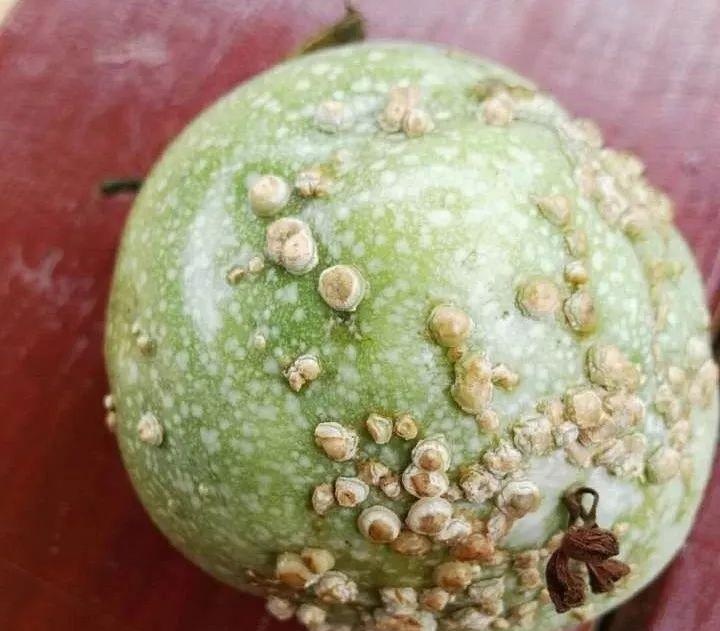Aphids, also known as "mesomorphs", and aphids, whiteflies, mites, thrips are called the five small pests of agriculture, which shows that the harm of aphids is very large.
Mainly because the scale of the insects is wide, it is not easy to control, but it is not soft to harm the crops!
In recent years, there have been cases of losses caused by tick diseases in the main production areas of passion fruit in China, and the following will tell you about the harm of ticks and how to control shell insects in passion fruit cultivation.

<h1 class="ql-align-justify" >, the symptoms of harm</h1>
Shellworms often colonize passion fruit leaves, branches, and fruits. Most species of insect shell insects have wings and can fly; females and larvae are feathered and live on branches or fruits for life.
Adults and nymphs use needle-like mouthparts to insert the leaves and branches of passion fruit into the tissues to suck up sap, and their excrement will induce coal pollution, which is manifested as a black mold layer on the surface of branches and leaves and fruits, hindering photosynthesis and affecting normal growth.
For the lighter harm, the passion fruit tree has poor growth, the leaves are yellow, the leaves fall early, and in the case of heavy harm, some branches are withered, the tree declines, and even the whole plant dies.
<h1>Second, the law of occurrence</h1>
Because of the different species, the body size is different, most of the insects are small, breed fast, 2 to 7 generations per year, the pest period varies from March to November, the nymph stage of the insect shell, the waxy shell is not formed or formed, it is easier to kill.
After the elderly nymphs form a waxy shell, it is difficult and expensive, so one of the key points in killing the insects is to spray the insects during the incubation period of the eggs and spray them before migration.
Note: During the incubation period of nymphs or eggs, the survival rate is high if there is more rain.
<h1>Third, prevention and control methods</h1>
1. Winter garden: after the fall of leaves in winter to before the budding of the following year, in the good weather without wind and sunshine, it is recommended to use 2-5 degree stone sulfur compound, and use the spray method to carry out meticulous and thoughtful spraying on the park;
2. Select high-quality seedlings, less insect sources, and reasonable fertilization, strong plants, which can enhance resistance;
3. You can use vegetable oil to apply the main vine and coarse branches, or use green protection 800 times to control the insect shell;
4. Strengthen the pruning technology of passion fruit, improve the ventilation and light transmission of the orchard, prune the whole branch of the seriously damaged branches, and destroy the affected branches and fruits in a concentrated manner to reduce the base of insects and eggs;
5. Drug control: the best control of nymph stage or egg incubation period, every 7-10 days, continuous application 2-3 times. Recommended medications: high-efficiency cypermethrin, acetamiprid, thiazinone, imidacloprid, spironium ethyl ester, etc. (organophosphorus pesticides are not recommended);
6, biological control: the main natural enemies of the insect shell insects are ladybugs and grasshoppers and other predatory natural enemies, aphid wasps and jumping wasps and other parasitic natural enemies, choose these natural enemies with low toxicity, try to take field provocation, less use of comprehensive spray.
The above methods of controlling insect shell insects are for reference only!
【Statement】The content of this article refers to Huinong Network, hereby acknowledged!